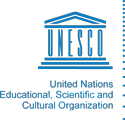2012. 20 p.
Periodical title:
AIDS Care, 24 (8), 993-1012
Description:
The number of children losing one or both parents to HIV/AIDS has continued to rise in the past decade, with most of them being school-aged children. This study reviews global literature on the effects of HIV/AIDS (e.g., parental HIV-related illness or death) on children's schooling. Systematic review procedures generated 23 studies for examination. Existing studies show educational disadvantages among children affected by AIDS in various educational outcomes, including school enrollment and attendance, school behavior and performance, school completion, and educational attainment. A number of individual and contextual factors potentially moderate or mediate the effect of HIV/AIDS on children's education. These factors include gender of child, pattern of parental loss (maternal vs. paternal vs. dual), living arrangement (relationship with caregivers, gender of the household head), and household poverty. Current literature indicates limitations in number and scope of existing studies and in educational outcome measurements. There is a lack of studies with longitudinal design and data collection from multiple sources (e.g., students, teachers, caregivers), and a lack of studies on the relationship between psychosocial well-being of children affected by AIDS and their educational outcomes. Future studies need to employ more rigorous methodology and incorporate both individual and contextual factors for children affected by AIDS in various regions. More efforts are needed to design and implement culturally appropriate and context-specific approaches to improve the educational outcomes of children affected by AIDS.
Links:
Themes:
Resource types:
Keywords:
Languages:
Record created by:
IIEP


